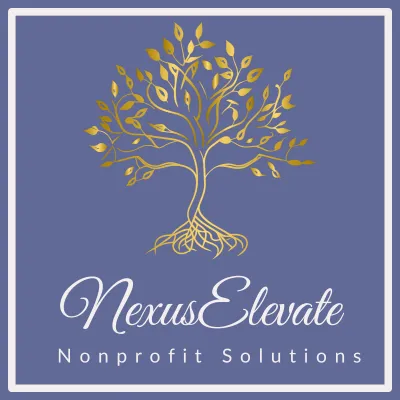

Advancing Diversity, Equity, and Inclusion: Comprehensive Strategies for Canadian Nonprofit Organizations
“Diversity, equity, and inclusion are not just policies; they are guiding principles that illuminate the path towards a more equitable and compassionate world, where every voice is heard, every perspective valued, and every individual empowered to thrive." - Nexus Elevate Nonprofit Solutions
In today's increasingly diverse and interconnected society, nonprofit organizations in Canada are faced with the imperative of embracing diversity, equity, and inclusion (DEI) as foundational principles. Beyond being moral imperatives, DEI initiatives are essential for ensuring organizational effectiveness, fostering innovation, and advancing social justice. In this comprehensive guide, let’s delve into the critical importance of DEI across all facets of nonprofit operations, including human resources, governance, and leadership. We'll explore not only why DEI matters but also how nonprofit leaders can implement best practices to create more equitable and inclusive organizations.
Understanding the Significance of DEI
Diversity encompasses the full spectrum of human differences, including but not limited to race, ethnicity, gender, sexual orientation, age, ability, religion, and socio-economic status. Equity involves ensuring fair treatment, access, opportunity, and advancement for all individuals, while inclusion entails creating environments where diverse individuals feel valued, respected, and empowered to fully participate. It’s a good idea to have a DEI statement on your website and any other appropriate organizational documents.
DEI in Nonprofit HR Practices
Recruitment and Hiring: Nonprofit HR departments must proactively recruit and hire diverse talent. This involves implementing inclusive job descriptions, leveraging diverse recruitment channels, and conducting blind resume reviews to mitigate unconscious bias.
Training and Development: Provide ongoing DEI training and professional development opportunities for staff at all levels. This includes cultural competency training, unconscious bias workshops, and diversity-focused leadership development programs.
Performance Management: Ensure that performance evaluations are fair and equitable. Address any disparities in feedback or advancement opportunities based on demographic factors. Recognize and reward contributions from diverse staff members.
Employee Resource Groups: Establish employee resource groups (ERGs) or affinity groups to provide support, networking, and advocacy opportunities for employees from underrepresented groups. Encourage participation and leadership from all staff members.
DEI in Governance and Board Leadership
Board Composition: Ensure that the board of directors reflects the diversity of the communities served. Actively recruit board members from diverse backgrounds, including individuals with lived experience relevant to the organization's mission.
Board Training and Education: Provide DEI training and orientation for board members to enhance their understanding of equity issues and their role in promoting diversity within the organization. Encourage ongoing learning and dialogue around DEI topics.
Inclusive Decision-Making: Foster a culture of inclusive decision-making within the boardroom. Encourage open dialogue, active listening, and respectful debate. Ensure that diverse perspectives are considered in all strategic decisions.
Accountability and Transparency: Hold the board accountable for advancing DEI goals and objectives. Establish DEI metrics and benchmarks for board performance evaluation. Report progress on DEI initiatives to stakeholders in an open and transparent manner.
Operationalizing DEI Principles
Strategic Planning: Integrate DEI goals and objectives into the organization's strategic planning process. Develop a DEI action plan with measurable targets and timelines for implementation. Engage stakeholders in the planning process to ensure buy-in and alignment.
Policy Review and Revision: Conduct a comprehensive review of organizational policies and procedures to identify and address any barriers to diversity, equity, and inclusion. Ensure that policies are equitable and inclusive of all staff and stakeholders.
Community Engagement: Engage with diverse community partners and stakeholders to inform and support DEI efforts. Seek input and feedback from marginalized communities to ensure that programming and services are responsive to their needs.
Leadership Commitment: Demonstrate visible leadership commitment to DEI by allocating resources, setting clear expectations, and holding leaders accountable for advancing DEI goals. Foster a culture of inclusion from the top down.
Summing up!
By embedding diversity, equity, and inclusion into every aspect of organizational culture, governance, and operations, nonprofit leaders can create more equitable and inclusive organizations that are better equipped to achieve their missions and serve their communities effectively. Through intentional action and sustained commitment, nonprofits in Canada can lead the way in advancing social justice and building a more equitable society for all.
Author: Wendy Kotorynski
https://www.nexuselevatenonprofitsolutions.com

I agree to terms & conditions provided by NexusElevate Nonprofit Solutions. By providing my email address, I agree to receive email messages from the business.
Copyright 2024 NexusElevate Nonprofit Solutions
All Rights Reserved